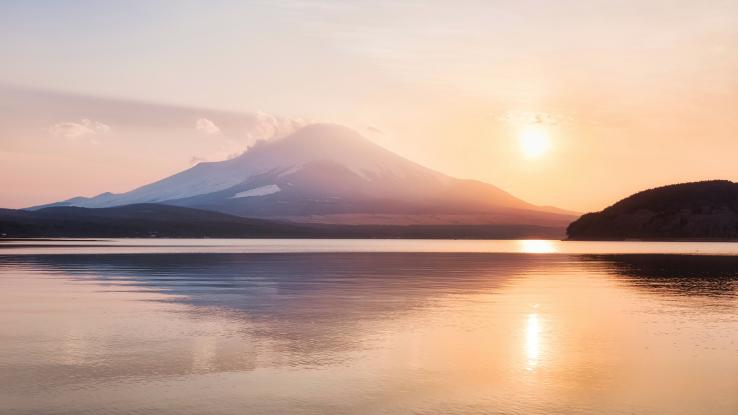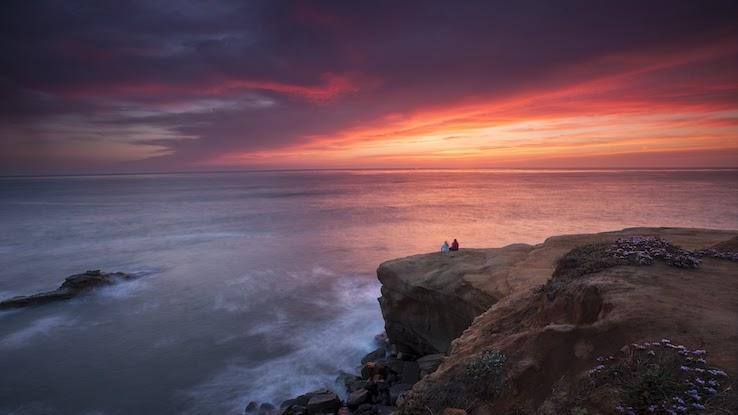Japanese Symbols and Meanings Easy Japanese Symbols and Meanings

People all over the world will stop what they are doing to watch the sunset. After all, we're drawn to the sunset's beauty just as much as what the event signifies. For example, the setting sun symbolizes the completion of a journey. Scientifically speaking, sunset is when the sun disappears below the horizon each day as the Earth rotates. Those often vibrant colors are the result of a phenomenon called scattering, in which molecules and other small particles in the atmosphere change the direction of light rays, causing them to scatter and create that incredible range of colors that we love to gaze at.
Beyond its physical beauty, there is also a metaphorical beauty in watching a daily sunset. The sunset symbolizes the completion of a day's work and shows the passage of time. As the sun sets, it is time to end the day and take a break. The awesome beauty of the setting sun is also symbolic of the beauty and mystery of life itself. The setting sun is nature's way of reminding humanity about the forces of good and evil. As the sun sets, light fades, which is symbolic of the forces of darkness.
Sunset Symbolism in Different Cultures
Many cultures and religions across the world respect and appreciate the sun — and associate its rising and setting with something much larger. In cultures the world over, the sun has long been a symbol of power, growth, and the cycle of life. A handful of countries, such as Ecuador, Namibia, Taiwan, and the Philippines, revere the sun's symbolism so much that they have even incorporated it into their national flags.

Additionally, the sun is a very important part of Chinese culture, in which it represents light, heat, vitality, and spring. It's even a symbol associated with the popular Chinese ideology of yin and yang — the concept of dualism. In basic terms, it means that different (and sometimes opposing) forces can coexist and even complement each other, much like the sun (day) and the moon (night). Since it's believed to energize and purify, the sun falls under the yang category.
According to the Smithsonian National Museum of African Art, "In some traditions on the continent and in the African diaspora, the rising and setting of the sun and its path across the sky each day suggest the cycle of life, from birth to adulthood to death and rebirth." For some, the sun is seen as a powerful, commanding symbol of divinity, with a brightness too strong to even gaze at. The rising and the setting of the sun, and its travels across the sky every day, are also believed to reflect the cycle of life from birth to adulthood to death and eventual rebirth.
In ancient Egyptian culture, the sun god Ra was seen as the ruler of the skies, earth, and the underworld. It was believed that Ra was the source of life and light and that he brought healthy crops and calm weather. With each sunset, ancient Egyptians thought that he died each night and descended to rule in the underworld. He was then reborn each morning with the sunrise.
While the specific views and beliefs about the sun vary greatly between Indigenous tribes in North America, there are some commonalities. For example, the sun is often a healer, lover of peace, and an object that radiates light from a powerful entity onto the world. As is the case in cultures all over the world, many Indigenous peoples in North America see the sun as the facilitator of crops and representative of growth. Moreover, the sunset is respected: It makes way for the moon, which is commonly seen as a guide, protector, and timekeeper, among other things.
In some Western European cultures, sunsets can represent closing the door on a particular stage of life for something new or even the end of life.
Because the sun and the sunset are so beautiful and symbolic, many beloved authors, philosophers and thinkers have written about them. Below are a few of the most standout inspirational quotes that incorporate the symbolism of the sunset.

"Every sunset brings the promise of a new dawn." — Ralph Waldo Emerson
- Sunsets are a daily occurrence — as are sunrises — and, as such, promise that a new day, and a fresh start, is right around the corner.
"Sunsets are proof that endings can often be beautiful too." — Beau Taplin
- The sunset brings beauty even though it is the end of the day. This quote is a reminder that endings in relationships, jobs, and more lead to new opportunities and happiness, even if these endings may seem disheartening at first glance.
"There's a sunrise and a sunset every single day, and they're absolutely free. Don't miss so many of them." — Jo Walton
- We are always so busy with the daily tasks of life, but it's important to make time to rest, reflect and relax. When we're constantly running around, there are so many great moments that we miss or take for granted, including the beauty of sunsets.
"Sunsets are proof that, no matter what happens, every day can end beautifully." — Kristen Butler
- With so much on our plates, finding balance can feel impossible during the course of a taxing day. However, seeing a sunset at the end of each day can, most certainly, bring a smile to your face as it reminds you of the good — of the beautiful.
"It is almost impossible to watch a sunset and not dream." — Bern Williams
- Sunsets are very calming and, as such, offer us a chance to pause and reflect. The next time you see a sunset, take a moment to think about your own dreams and where you want to go in life.
Source: https://www.reference.com/world-view/sunset-symbolize-e922ead913f467e7?utm_content=params%3Ao%3D740005%26ad%3DdirN%26qo%3DserpIndex&ueid=8426e2b2-f067-45a2-867a-f190c9a8d9a5
Post a Comment for "Japanese Symbols and Meanings Easy Japanese Symbols and Meanings"